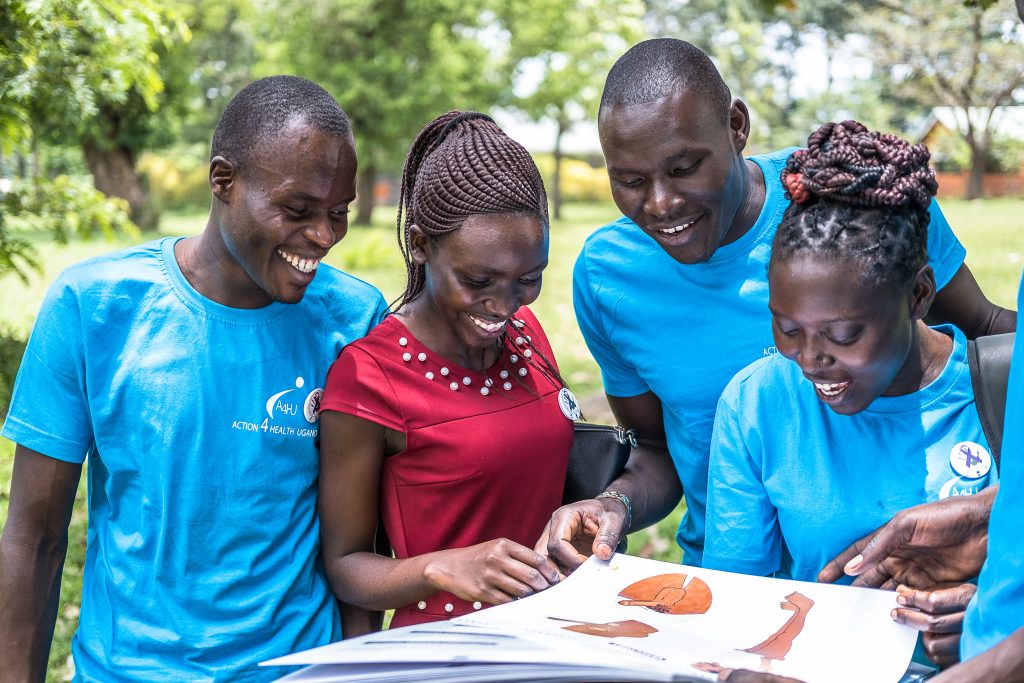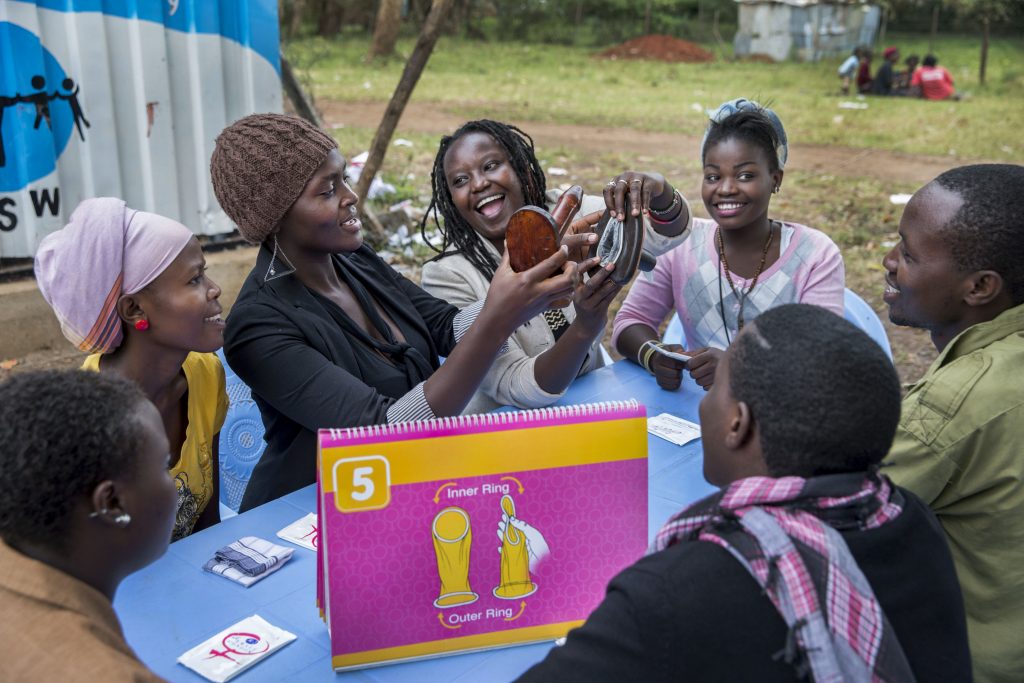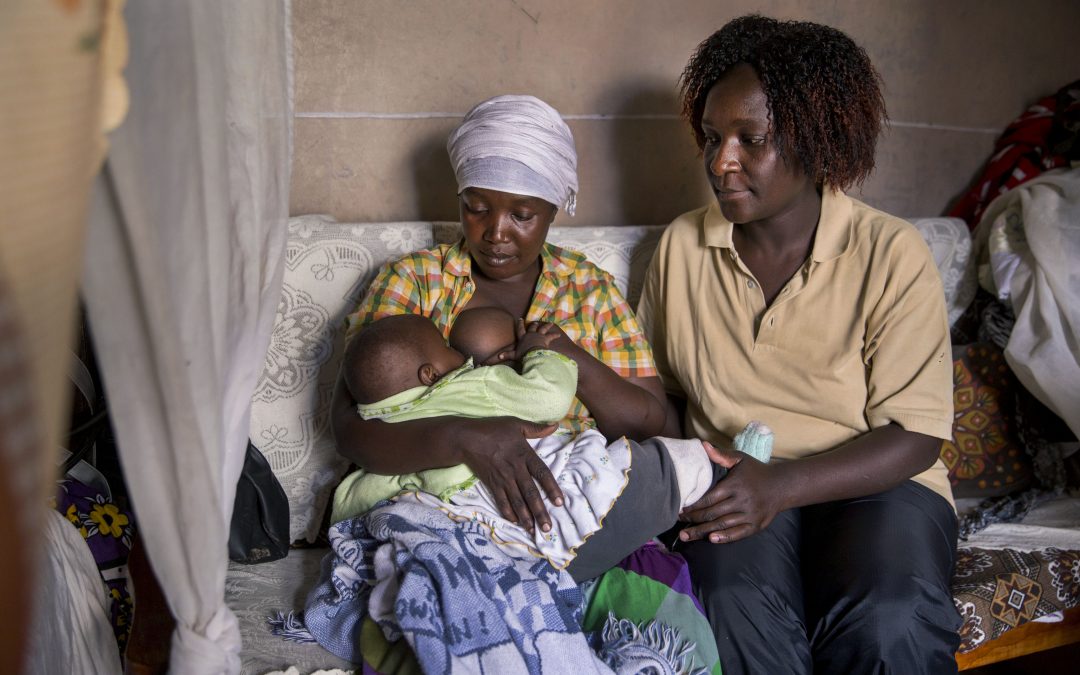“Africa’s population is the fastest-growing in the world. Yet sexual and reproductive health and rights are being neglected amid the pandemic with dire consequences,” says Evelyn Samba for World Population Day (July 11, 2020).
Africa, along with the rest of the world, is currently responding to the COVID-19 pandemic with over 320,000 confirmed COVID-19 cases across the continent so far.
Many African governments have put in place measures to shore up their economies and to cushion their citizens from a downturn in earnings. However, discussions about the effect of COVID-19 on other aspects of life, such as reproductive healthcare, and the well-being of women and girls at risk of gender-based violence, have been largely neglected.
This has already had dire effects on reproductive, maternal, new-born, child and adolescent health in Africa.
The disruption to access to sexual and reproductive health services in Africa is putting pregnant women and their families at increased risk. And this isn’t just a short-term problem.
More unsafe births, less access to contraceptives and increased risk of contracting sexually transmitted diseases also have long-term impacts on women, their families and societies.
In Zimbabwe, the number of caesarean sections performed decreased by 42%, and in April only 15% of births took place with skilled health attendants compared to last year. Access to contraceptives in many areas has decreased by 90%. In some parts of Kenya, only a quarter of pregnant women were able to go to antenatal clinics.

Information on sexual and reproductive health and contraceptives helps young people make choices. Photo by Brian Otieno.
Millions of Africans depend on public health institutions for reproductive health. The United Nations Population Fund (UNFPA) in a report found that in times of crisis, reproductive health needs are likely to be overlooked. But even during the COVID-19 pandemic, African governments need to keep providing reproductive healthcare services.
That means, at the very minimum, the public health sector must be able to address complications of pregnancy and delivery, the transmission of sexually transmitted infections including HIV and AIDS, adolescent sexual and reproductive health concerns, and ensure access to condoms and other contraceptives.
Midwives need to be able to visit women and information campaigns need to continue even when everyone wears a facemask. And even during the pandemic, African women, and their partners, need to have a satisfying and safe sex life – and be able to choose if and when they want to have children.
If that is not ensured, countries across Africa are likely to see an increase in sexually transmitted infections, including HIV, increased unintended pregnancies and unsafe abortions as well as a rise in maternal and neonatal deaths.
Even before the pandemic, many African governments were struggling with these issues. Many also did not manage to meet funding requirements for health – including sexual and reproductive healthcare.

Photo by Jonathan Torgovnik/Reportage by Getty Images.
Despite progress over the years, many African women and girls are still unable to enjoy their reproductive rights. Far too many women do not have access to modern contraceptives, too many adolescents and young people are getting pregnant and getting infected with HIV.
Maternal deaths are still unacceptably high. Sub-Saharan Africa accounted for 66% of the estimated global maternal deaths in 2017.
Improvements achieved over decades are now at stake if we do not pay attention to reproductive healthcare amid the pandemic.
The silver lining is that we have commitment from the highest political office on reproductive healthcare. At the Nairobi Summit on the 25th anniversary of the International Conference on Population and Development (ICPD +25) in 2019, African governments committed to provide much needed family planning information and services, to end preventable maternal deaths and maternal injuries, as well as stopping sexual and gender-based violence and harmful practices.
As African governments reorganise public health systems to respond to COVID-19, decision makers need to keep in mind that, at the same time, it is also imperative to provide adequate funding to meet the reproductive healthcare needs of African women and their partners.
Evelyn Samba is the Kenya country director of DSW. Featured image by Jonathan Torgovnik/Reportage by Getty Images.
This article was first published on Deutsche Welle on July 10, 2020. Listen to Evelyn’s interview with DW here.

